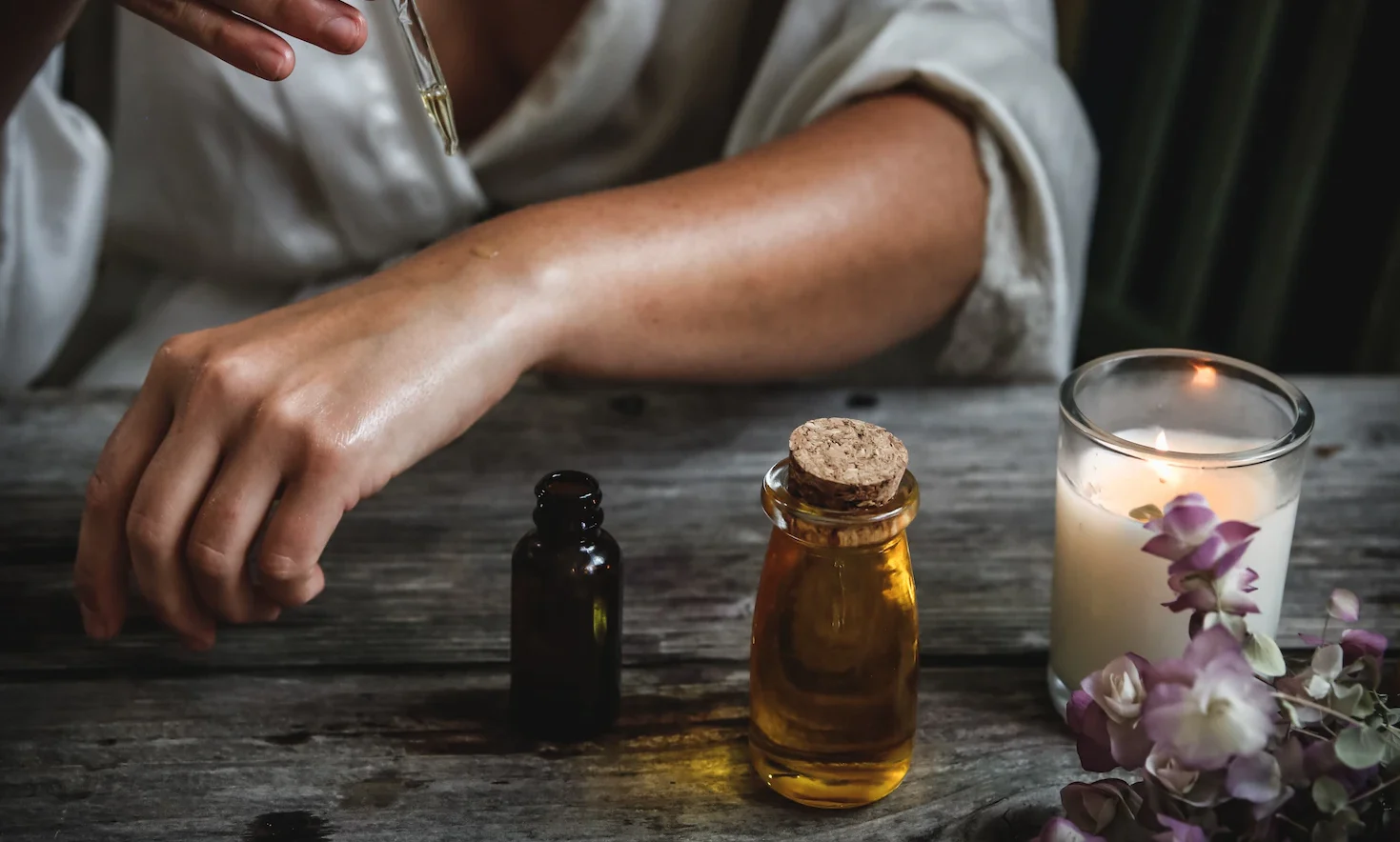
The Traveller’s Guide to a Good Night’s Sleep: Exploring CBD Options
When it comes to travelling, one vital thing often gets sacrificed—sleep. Frequent globe trotters are already all too familiar with the fact that sleep disturbances are a common—if not inevitable—phenomenon when travelling. This could be attributed to a combination of physiological, environmental, and behavioural factors, but the most commonly cited reason is jet lag. In fact, according to studies conducted by the American Sleep Association, approximately 74% of travellers experience sleep disturbances due to jet lag. Fortunately, there is an effective and readily available remedy to that—CBD. Owing to its immense and widely varied therapeutic benefits, cannabidiol is sought-after for its potential to promote relaxation and improve sleep quality and quantity. In this article, we will delve into the science of how CBD exerts such effects, as well as how travellers can harness the sleep-inducing properties of CBD to achieve a restful night’s sleep amidst their journeys.

Understanding CBD and Sleep
Cannabidiol—more popularly known as CBD—has been making a buzz in the medicinal community thanks to its varied and potent therapeutic benefits, among which is its ability to alleviate sleep disturbances. It does so by inducing profound relaxation and stimulating the production of neurotransmitters like anandamide and serotonin. Ultimately, CBD’s ability to aid in sleep is attributable to its interaction with the endogenous cannabinoid system (ECS) and other neurotransmitter systems in the human brain. To understand it better, let us delve deeper into the science of CBD’s sleep-enhancing effects.
1. CBD Modulates the Endocannabinoid System
The human nervous system is comprised of interlinked tangles of cell-signalling systems scattered throughout the body. One of the many complicated systems of neural networks that keep us functioning is what we call the endocannabinoid system. The ECS mainly uses anandamide and 2-arachidonoylglycerol (2-AG) as its neurotransmitters. By modulating the CB1 and CB2 receptors in the brain, these neurotransmitters increase sleepiness as well as the REM sleep duration.
In particular, when 2-AG is supplied in the lateral hypothalamus, it has been shown to increase REM sleep duration, thus, increasing somnolence. On the other hand, anandamide increases adenosine levels in the basal forebrain, which causes you to feel sleepy. Such sleep-inducing effects are particularly beneficial for travellers who struggle with falling and staying asleep due to jet lag.
2. CBD Exerts Anxiolytic and Relaxing Effects
One of the most sought-after effects of CBD is its ability to reduce anxiety and induce relaxation like no other. Anxiety and stress are common factors contributing to sleep disturbances like difficulty falling and staying asleep. By interacting with receptors in the brain’s limbic system—which is involved in emotional regulation—CBD helps alleviate anxious feelings, thereby promoting a sense of calm and relaxation that is conducive to better sleep.
3. CBD Influences the GABAergic System
The gamma-aminobutyric acid (GABA) system is the primary inhibitory neurotransmitter system in the brain. GABAergic signaling has a calming effect on the central nervous system and is involved in the regulation of sleep.
Several studies suggest that CBD may modulate GABAergic transmission and potentially enhance GABA’s inhibitory effects. This modulation then contributes to the sedative and anxiolytic effects of CBD, which promotes relaxation and facilitates the onset of a deep, restful slumber.

4. CBD Stimulates Serotonin Receptor Activation
CBD also interacts with serotonin receptors, particularly the 5-HT1A receptor. Serotonin is a neurotransmitter associated with mood regulation and the sleep-wake cycle.
By influencing serotonin receptor activity, CBD contributes to mood stabilization and the promotion of restful sleep. Dysregulation of serotonin is often implicated in sleep disorders such as insomnia and depression.
5. Pain and Inflammation Reduction
CBD’s anti-inflammatory and pain-relieving properties may indirectly contribute to improved sleep. Chronic painful conditions like arthritis or neuropathy can interfere with sleep and contribute to sleep disturbances. By reducing inflammation and alleviating pain, CBD may address one of the underlying causes of sleep disruption, which allows individuals to experience more comfortable and uninterrupted sleep.
6. Circadian Rhythm Regulation
The circadian rhythm, the body’s internal clock, plays an indispensable role in regulating the body’s sleep-wake cycle. Disruptions to this rhythm, such as those caused by jet lag, can lead to sleep difficulties.
CBD may influence circadian rhythm regulation by interacting with receptors involved in the body’s internal timekeeping. This interaction could potentially help travelers adjust more quickly to new time zones and mitigate the effects of jet lag.
Choosing the Right CBD Product
Before integrating CBD into your travel routine, it is essential to choose the right product. Cannabidiol comes in a wide variety of dosing forms, such as oils, edibles, tinctures, capsules, and topical creams. Each form has its unique advantages, and the choice often depends on personal preference and the specific sleep-related issues you’re looking to address.

1. CBD Oil-infused Edibles
Edibles (chocolates, gummies, brownies, etc.) infused with pure or even full-spectrum CBD oil are popular choices for those seeking a tasty and convenient way to dose with the benefit of long-lasting effects. Through this method, you will get anywhere from three to four hours of CBD’s continuous effects. The only downside is that the effects are delayed for 30 minutes because it would have to go through the digestive system process first.
2. Sublingual Tinctures
With tinctures, you can go through the sublingual route of administration, wherein you will place the oil/tincture under the tongue and wait for 15 to 30 seconds before swallowing. This method of dosing allows for quick absorption into the bloodstream, which makes it an effective option for promoting relaxation and sleep swiftly. With tinctures, you will be able to feel the effects after just 15 minutes. The downside, however, is that the effects are fairly short-lived. Nonetheless, this wouldn’t be a problem as long as you fall asleep within 15 to 45 minutes of the onset of effects.
3. CBD Capsules
Capsules are yet another convenient and discreet way to incorporate CBD into your travel routine. They provide a pre-measured dose, making it easier to control your intake. However, the onset of effects may be slightly slower compared to tinctures.
4. Topical CBD
For individuals who may experience localized discomfort affecting their sleep, topical CBD creams or balms can be applied directly to the painful area. While they may not directly induce sleep, they can contribute to overall relaxation and pain relief, which may induce a conducive state for sleeping. To explore products specifically designed for enhancing sleep, visit Dutch Natural Healing.
Notes on Proper Dosing
Every individual’s pharmacokinetics vary, which is why a certain dosage may work for one individual, but not for another. Hence, determining the right CBD dosage for you can be a bit of a trial-and-error process. Thus, it is advisable to start with a low dose—perhaps 10 mg—and gradually increase it until you find the optimal amount for your needs. In addition, consulting with a healthcare professional before incorporating CBD into your routine is recommended, especially if you are taking other medications. Doing so prevents any drug-drug interaction that may occur when you take CBD concurrently with other medications.

Creating a Relaxing Bedtime Routine
Incorporating CBD into a holistic bedtime routine can maximize its sleep-enhancing benefits. Consider the following tips for creating a tranquil pre-sleep ritual:
1. Set a Consistent Sleep Schedule
Getting used to a regular sleep routine helps regulate the body’s internal clock. CBD can be integrated into this routine, for instance, by consistently drinking CBD-infused tea 30 minutes before your bedtime. Doing this at the same time every night promotes relaxation and signals the body that it is time to wind down. Soon enough, your body will get conditioned to feel sleepy at that certain time, even without taking CBD.
2. Create a Comfortable Sleep Environment
To sleep better, be sure to create a sleep environment that is conducive to relaxation. Dim the lights, minimize noise, and maintain a comfortable room temperature. Applying a CBD-infused topical cream before bed may contribute to a soothing sensory experience.
3. Practice Mindfulness and Relaxation Techniques
Combining CBD with mindfulness practices, such as deep breathing or meditation, can enhance its calming effects. Consider incorporating these techniques into your bedtime routine to promote mental relaxation.
Legal Considerations and Travel
Before traveling with CBD, it is crucial to be aware of the legal status of CBD in your destination. While CBD derived from hemp is legal in many places, regulations can vary, and some countries may have restrictions or prohibitions on CBD products. Familiarize yourself with local laws and regulations to avoid any legal complications during your travels.
Unlocking Tranquil Nights With CBD
As travellers embark on journeys that may disrupt their natural sleep patterns, exploring natural solutions like CBD can be a game-changer. With its potential to promote relaxation, reduce anxiety, and improve sleep quality, CBD offers a holistic approach to achieving a good night’s sleep on the road. By understanding the different ways by which you can dose CBD, knowing the right dosage that works for your body, and incorporating it into a comprehensive bedtime routine, travellers can unlock the tranquil nights they deserve, ensuring that each adventure begins with a well-rested and rejuvenated body and mind.






